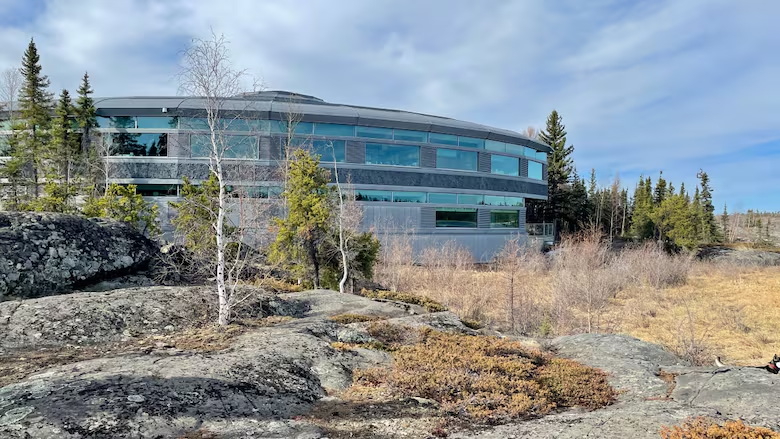Auditor general to release report on addictions prevention and recovery services in N.W.T.
Report will be tabled at the Legislative Assembly on Tuesday

A report by the auditor general's office looking at addictions prevention and recovery services in the N.W.T. will be tabled in the Legislative Assembly on Tuesday.
The report will be read by Frederick Blake Jr., the Speaker of the Legislative Assembly. A news conference is scheduled for 3 p.m. — shortly after the report is read — with Jo Ann Schwartz, a principal with the auditor general's office.
A news release gives no details on what will be included in the report. But the subject of addiction treatment and mental health resources has been a topic of ongoing discussion in the Assembly.
Increasing the number and variety of culturally respectful, community-based mental health and addictions programs was one of the 22 priorities of the current government at the start of its term.
One of the programs offered as part of the government's strategy is the community counselling program which offers all residents in any community free sessions and support. The report said in 2020-21, addiction was the leading reason for people using the service.
According to the Department of Health and Social Services 2020-21 annual report, the territorial government has been working on an alcohol strategy that involves a medical detox model.
The report says that year $280,000 in funding was made available to community-based or Indigenous organizations for addictions recovery and harm reduction programing.
No treatment centres in the N.W.T.
There are currently no addiction treatment centres within the N.W.T., and Rocky Simpson, MLA for Hay River South, has said he wants that to change.
He raised the subject with Julie Green, territorial health minister, in the Legislative Assembly in February.
Green responded by saying the N.W.T. provides on-the-land funding so that communities can adapt the wellness treatment to the way that suits their community best. She said there are plans to build a wellness and recovery centre in Yellowknife in 2024, but no others are "on the books at this time."
Some communities have taken the issue of addictions into their own hands, including Fort Simpson, N.W.T., where there is an independently-run warming centre that has offered a managed alcohol program.
This is financed by a community member and the department of housing, and run by Fort Simpson residents.
There have also been some indirect addiction treatments that have come from federal funding.
This includes a healing camp at Aurora Village, which received $2.8 million for four months with the objective to protect the homeless population from COVID-19, but ended up helping several clients deal with addiction-related issues using programs like managed alcohol.
Between February 15 and March 31, 2021, a survey administered by the department of Health and Social Services heard from 439 people in the N.W.T. who have sought addiction treatment.
The survey found that people seeking treatment for substance use disorders in the territory are generally happy with the quality of the services that exist — but want to see more treatment options available in their communities.